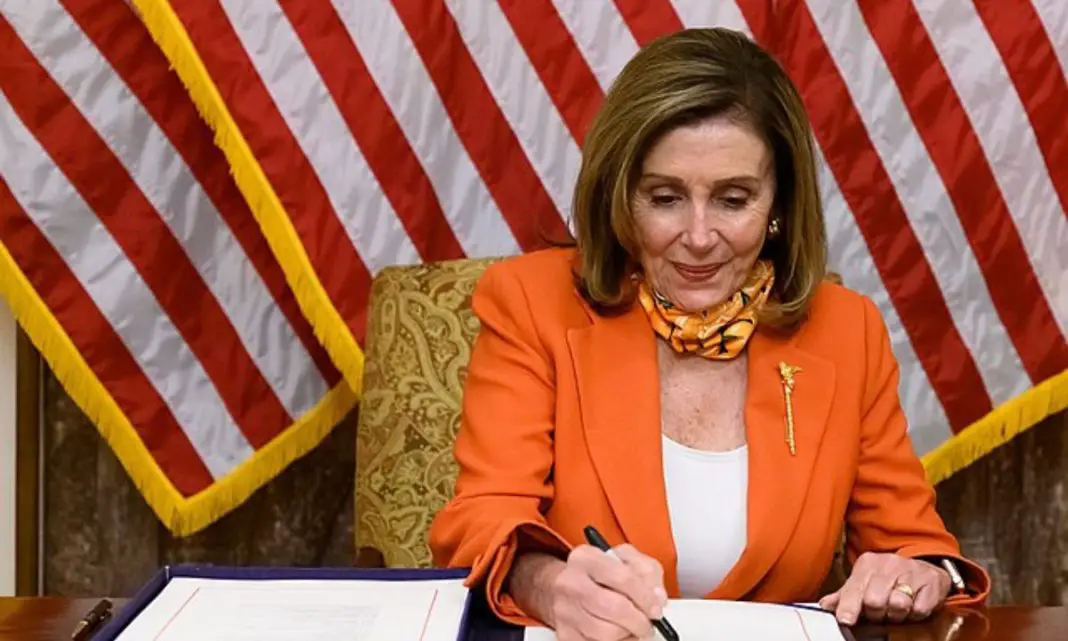For too long, members of Congress have enjoyed a troubling advantage, leveraging their positions to trade stocks with access to privileged information unavailable to the average American. This practice creates an uneven playing field, eroding public trust in the integrity of elected officials. While everyday citizens navigate the stock market with limited resources and public data, lawmakers can exploit insider knowledge, potentially profiting from decisions they influence directly. Such actions not only raise ethical concerns but also deepen the divide between those in power and the people they serve.
The ability of Congress members and their families to trade stocks freely undermines the principle of equal opportunity. When lawmakers buy or sell shares in industries they regulate or subsidize, it sends a message that personal gain may take precedence over public interest. This perception fuels cynicism, as Americans question whether their representatives prioritize constituents or their own portfolios. The stakes are high: unchecked stock trading by elected officials risks further alienating a public already skeptical of government motives.
Addressing this issue is not just about ethics—it’s about restoring faith in democracy. By banning stock trading among lawmakers, Congress can demonstrate a commitment to fairness and accountability. A system where elected officials profit from exclusive insights is inherently unjust, and the American people deserve a government that operates with transparency and integrity. Legislation targeting this problem is a critical step toward leveling the playing field and ensuring that public service remains a duty, not a pathway to personal enrichment.
The PELOSI Act: A Plan To Stop Congressional Stock Trading Dead In It’s Tracks
On Monday, during the 119th U.S. Congress, Sen. Josh Hawley (R-MO) reintroduced a groundbreaking bill aimed at halting stock trading by lawmakers and their families. Known as the Preventing Elected Leaders from Owning Securities and Investments (PELOSI) Act, the legislation seeks to “amend chapter 131 of title 5, United States Code, to prohibit transactions involving certain financial instruments by Members of Congress,” according to its text. The bill’s name pointedly references former House Speaker Nancy Pelosi (D-CA), spotlighting concerns about insider trading in Congress.
The PELOSI Act would impose strict limits, requiring lawmakers and their spouses to refrain from “holding, purchasing or selling individual stocks for the duration of the lawmaker’s time in office,” as outlined in a press release from Hawley’s office. Should the bill pass, compliance would be mandatory within 180 days. Failure to adhere would carry steep consequences: lawmakers would be required to “forfeit any stock profits to the U.S. Department of the Treasury” and face additional financial penalties.
NEW: Senator Josh Hawley is bringing back the 'PELOSI Act' to BAN lawmakers from trading stocks.
Pelosi:
Annual salary: $174k- $223k
Estimated Net worth: $240 millionHow?? pic.twitter.com/nhX358mJmq
— Libs of TikTok (@libsoftiktok) April 28, 2025
Hawley’s push for reform is not new. He reintroduced the PELOSI Act in January 2023, following an earlier proposal in 2022 for the Banning Insider Trading in Congress Act. His persistence reflects growing public demand for accountability. “Members of Congress should be fighting for the people they were elected to serve—not day trading at the expense of their constituents,” Hawley declared. “Americans have seen politician after politician turn a profit using information not available to the general public. It’s time we ban all members of Congress from trading and holding stocks and restore Americans’ trust in our nation’s legislative body.”
The PELOSI Act gained traction after reports in 2023 highlighted questionable trading by Paul Pelosi, husband of Nancy Pelosi. According to Breitbart News’s John Binder, Paul Pelosi purchased “up to $5 million in stock in a semiconductor company” just as the Senate was advancing legislation to heavily subsidize the semiconductor industry. This timing raised eyebrows, fueling calls for reform and prompting Hawley to reintroduce the PELOSI Act to address such conflicts of interest.
Support For Reform From President Trump
The idea of banning congressional stock trading has garnered attention beyond Capitol Hill. While participating in an interview with Time magazine, President Donald Trump was asked about whether or not he would “support a ban on congressional stock trading.” His response was unequivocal: “Well, I watched Nancy Pelosi get rich through insider information, and I would be okay with it,” Trump said. “If they send that to me, I would do it.” His willingness to sign such legislation signals potential bipartisan momentum for change.
The PELOSI Act could be groundbreaking in its efforts to stop insider trading by congress-members. By prohibiting lawmakers from trading stocks, the bill will eliminate conflicts of interest and rebuild confidence in the federal government. Hawley’s legislation and the reform it will provide is much needed when it comes to Congress profiting unfairly while the average American experiences financial struggles.
Do think members of Congress should be able to trade stocks? As always, let us know what you think in the comments below!


How do expect congressional reps to get rich if they can’t grift the stock market?
Note each vote for keeping insider trading and vote them out or primary them.
They show where thier priorty is……with enriching themselves. With all the
benefits these people get …its way more than the avg worker for sure.
Enougth is enough….also Pelosi may just leave with her gravy train gone
That….would be a big plus…just watch what she does…disgracefull
We need her gone witht the wind!!.